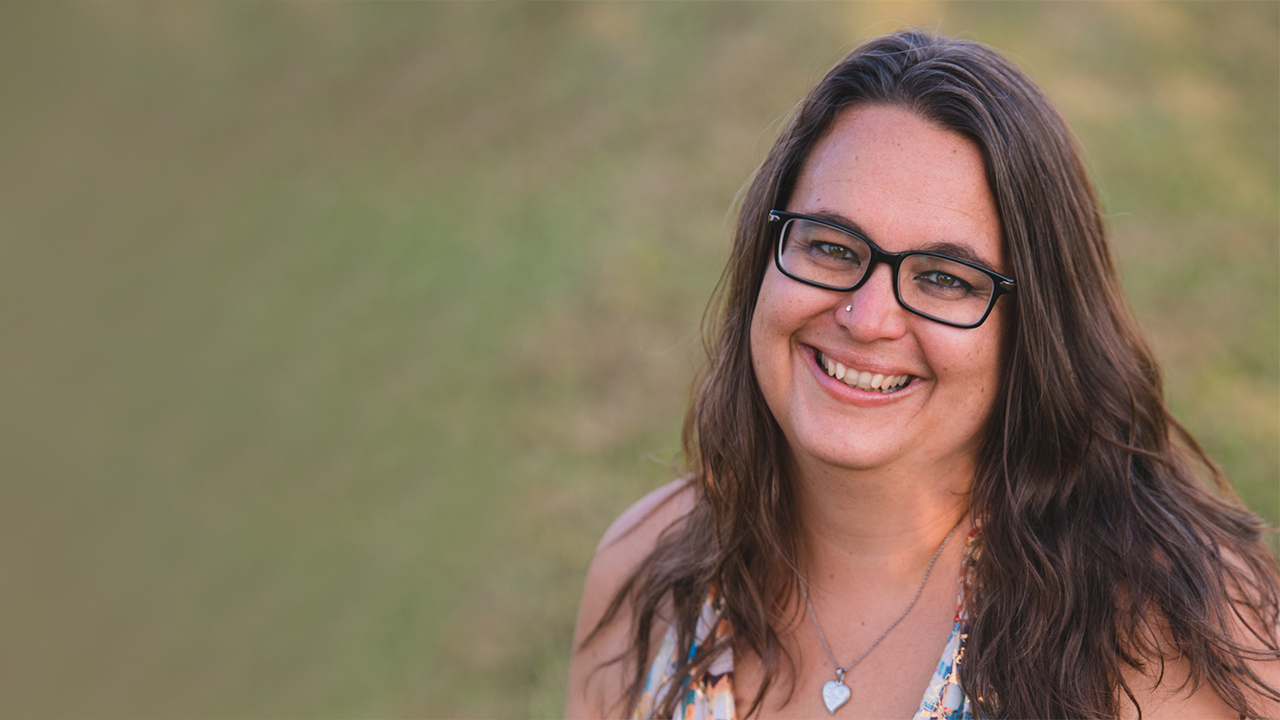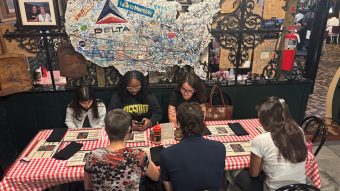Oct. 5, 2021
Contact: Deidra Ashley, ashleyde@missouri.edu
Tessi Muskrat Rickabaugh grew up in “purity culture” — the American Christian Evangelical ideology that girls and women are to dress modestly, participate in the heteronormative relationship structure and remain abstinent until marriage — which directly influenced her current studies.
“As I became an adult, the outcomes of purity culture in my family and friends were not what was promised,” she said. “Consequently, there were lots of questions. Does it work for anybody? What sorts of outcomes are other people getting outside of my own personal circle?”
Rickabaugh came to the University of Missouri in the early 2000s to work as an interpreter, helping Deaf students in the classroom. After spending a lot of time in the classroom helping others, it didn’t take long for her to realize she didn’t just want to translate lessons for other students; she wanted to learn them herself. The only problem? Her own internal conflicts about the role of women — a result of her purity culture upbringing — held her back. “It took a long time for me to apply,” Rickabaugh said. “I grew up with the concept that, as a woman, it was wasteful to pay for an education when I was already able to support myself through interpreting.”
Finally, 20 years after graduating high school, Rickabaugh enrolled at Mizzou. She found two majors that made sense for her.
“The Department of Religious Studies was kind of a natural home for me because of my upbringing,” Rickabaugh said. “I also just really fell in love with the Department of Women’s and Gender Studies with the faculty there. Both of those departments have really been my homes.”
As a student, Rickabaugh got to work finding the answers to all of the questions she had when she first arrived at Mizzou. She quickly found a glaring gap in research on purity culture outcomes and useful literature for therapists treating those affected by purity culture.
“People are going to therapists to work on their sex issues or their relational issues or whatever they attribute to purity culture, and they have to spend session after session teaching their therapist what purity culture is and how it impacted them,” said Rickabaugh.
This led to the subject of her capstone research: the impact of purity culture on those who grew up in it — specifically within the LGBT+ community.
Through both the Cherng Summer Scholars and the McNair Scholars Program, and the help of a research team — Alexandra Porcaro, Madison Worley, Alex Franco and her mentor, Francisco Sanchez — Rickabaugh is in the process of fully executing her research vision.
“Tessi is super-knowledgeable about the purity culture community. She's brought a lot of information that I just had no idea about. I really value the background knowledge she brings into our research,” said Worley. “She's a very passionate researcher,” Porcaro added.
In addition to the help of her research team, Rickabaugh found an outpouring of support on campus.
“There's excitement from the professors in both of my majors — around my interests, around the research I want to do, around the direction that I'm going — and that that excitement and encouragement is so incredibly powerful,” she said.
Using the consensual qualitative method — a way to study inner experiences, attitudes and beliefs — to analyze interviews, Rickabaugh and her team are working toward filling the gap in academic literature on abstinence-based sexual morality education and how it impacts aspects of sexual, mental and relational health.
Not only is Rickabaugh doing the research, but she also plans on putting it into practice. For that, she’ll also draw on her experience as an interpreter.
“I've done a lot of mental health interpreting, inpatient, outpatient addiction treatment, just lots of different things,” said Rickabaugh.
This led to her desire to use her findings within the scope of mental health — one of the many applications of this research. Rickabaugh hopes to use her research to inform how counselors and therapists treat those dealing with purity culture trauma outcomes. She plans to attend graduate school for counseling psychology.




